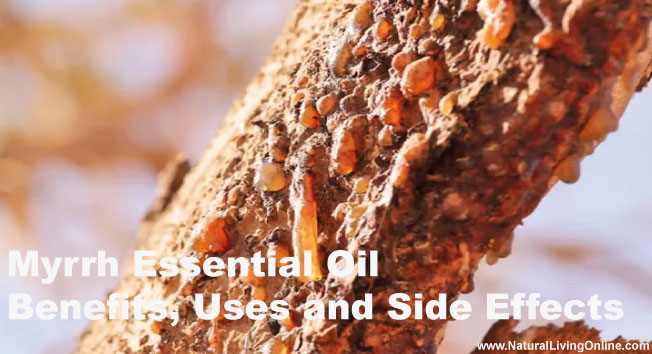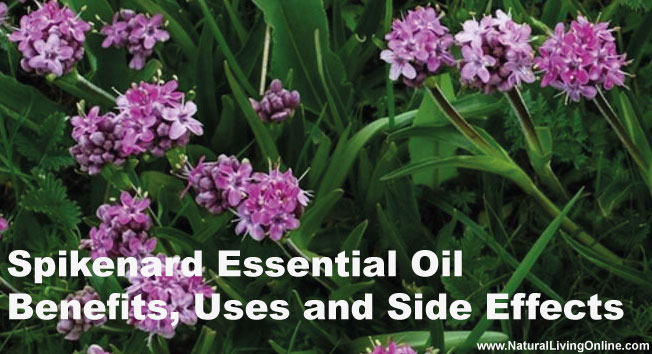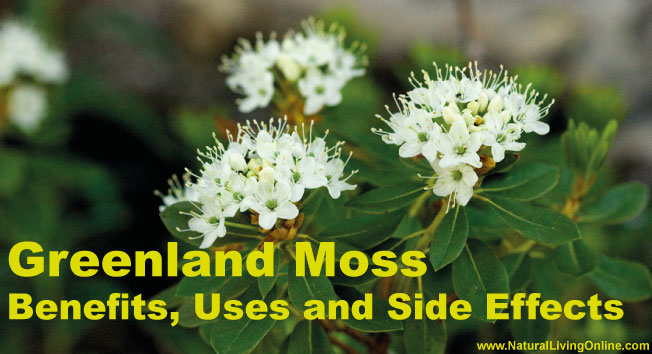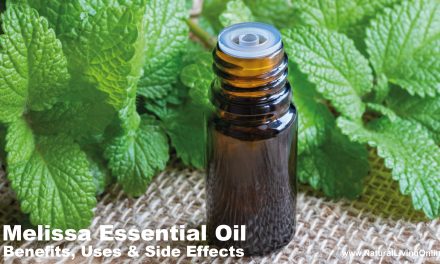Myrrh essential oil has been used for centuries in traditional medicine and is still used today for its many health benefits. Myrrh oil is derived from the resin of the myrrh tree and has a warm, earthy scent. This oil is commonly used in aromatherapy and has a wide range of potential health benefits, including reducing inflammation, boosting immunity and aiding digestion. Myrrh oil can be used topically, diffused or ingested. However, it is important to note that myrrh essential oil should not be used internally without the guidance of a qualified healthcare professional. When using myrrh oil topically, it is important to diluted with a carrier oil such as jojoba oil or coconut oil.
Essential Oil Profile / Monograph
Botanical Name: Commiphora myrrha
Common Names: Myrrh, Sweet Myrrh, Habbatus Sauda
Plant Family: Burseraceae
Countries of origin: Somalia, Ethiopia, Yemen
Extraction Method: Steam Distillation
Parts Used: Resin
Essential Oil smell: Warm, Earthy, Spicy
Essential Oil Color: Golden Yellow to Brown
Viscosity: Medium
Perfumery Note: Base
Strength of Aroma: Strong
Blends Well With: Lavender, Rosemary, Lemon, Clove Bud
Therapeutic Properties: Analgesic, anti-inflammatory, antispasmodic, astringent, carminative, decongestant, digestive, diuretic, emmenagogue, expectorant, immunostimulant, sedative
Uses: Aches and Pains, Arthritis, Asthma, Bronchitis, Candida & Yeast Infections, Colds and Flu’s, Coughs, Cystitis & Urinary Tract Infections, Depression, Diarrhea, Digestive Disorders, Earache, Flatulence, Gum Disease & Gingivitis, Headaches & Migraines, Immune System Support, Indigestion, Menstrual Cramps & PMS Relief
Contraindications: Avoid during pregnancy. Not to be used on children under the age of 2. Use with caution on people with high blood pressure.
Side Effects: Myrrh essential oil is generally safe to use. However, it can cause skin irritation in some people. It is recommended that you do a patch test before using it on a large area of skin. Myrrh essential oil should also be used with caution if you are pregnant or breastfeeding. If you have any concerns, please speak to your doctor before using myrrh essential oil.
Types: Blend, Absolute, CO2 Extract, Resinoid, Oil-Soluble Extract
Chemical Constituents: a-pinene (0.4-2.4%), limonene (0.1-3.7%), myrcene (trace-1.8%), a-terpinene (trace-2%), terpinolene (0.1-0.6%), a-terpineol (0.2-3.3%), linalool (0.1-1.4%), sabinene (trace-0.7%), y-terpinene (trace-0.5%), a-terpinyl acetate (0.3-2.7%), nerolidol (trace-1%)
various ketones and alcohols: myrtenol, myrtenyl acetate, a-terpineol acetate (trace-1.8%)
resinous material: commiphoric acid and commiphoronic acid (up to 40%), myrrholic acid, myrrhanolic acid, myrrhetinic acid
sesquiterpenes: curzerene, elemene, farnesene
phenolic ether: eugenol (trace-0.4%)
steroids: beta-sitosterol, stigmasterol
traces of anethole, thymol, benzaldehyde and vanillin can also be found in some myrrh oils
What is Myrrh?
Myrrh is a natural gum resin obtained from the stem of a small, thorny tree called Commiphora myrrha. This tree is native to countries like Somalia, Ethiopia, and Yemen. For centuries, myrrh has been used for its medicinal properties. Myrrh resin contains compounds like sesquiterpenes, terpenes, and phenolic ethers, which give it its unique healing properties.
What are the benefits of Myrrh Essential Oil?
Myrrh essential oil has numerous medicinal properties. It is an analgesic, anti-inflammatory, antispasmodic, astringent, carminative, decongestant, digestive, diuretic, emmenagogue, expectorant, immunostimulant, and sedative. It can be used to treat conditions like aches and pains, arthritis, asthma, bronchitis, colds and flu, coughs, diarrhea, digestive disorders, earache, flatulence, gum disease and gingivitis, headaches and migraines, menstrual cramps and PMS relief, and urinary tract infections.
Uses
Aches and Pains: It can be used to relieve pain. It is an analgesic, which means it helps to reduce pain.
Arthritis: It can be used to treat arthritis. It is an anti-inflammatory, which means it helps to reduce inflammation.
Asthma: It can be used to treat asthma. It is an antispasmodic, which means it helps to prevent spasms.
Bronchitis: It can be used to treat bronchitis. It is an expectorant, which means it helps to expel mucus from the respiratory tract.
Colds and Flu: It can be used to treat colds and flu. It is an expectorant, which means it helps to expel mucus from the respiratory tract. It is also an immunostimulant, which means it helps to boost the immune system.
Coughs: It can be used to treat coughs. It is an expectorant, which means it helps to expel mucus from the respiratory tract.
Diarrhea: It can be used to treat diarrhea. It is a carminative, which means it helps to relieve gas and bloating. It is also a digestive, which means it helps to improve digestion.
Digestive Disorders: It can be used to treat digestive disorders. It is a carminative, which means it helps to relieve gas and bloating. It is also a digestive, which means it helps to improve digestion.
Earache: It can be used to treat earache. It is an analgesic, which means it helps to reduce pain. It is also an antispasmodic, which means it helps to prevent spasms.
Flatulence: It can be used to treat flatulence. It is a carminative, which means it helps to relieve gas and bloating.
Gum Disease and Gingivitis: It can be used to treat gum disease and gingivitis. It is an astringent, which means it helps to tighten and tone the skin. It is also a disinfectant, which means it helps to kill bacteria.
Headaches and Migraines: It can be used to treat headaches and migraines. It is an analgesic, which means it helps to reduce pain.
Menstrual Cramps and PMS Relief: Myrrh oil can be used to treat menstrual cramps and PMS relief. It is an emmenagogue, which means it helps to stimulate blood flow. It is also an antispasmodic, which means it helps to prevent spasms.
Urinary Tract Infections: Myrrh oil can be used to treat urinary tract infections. It is a diuretic, which means it helps to increase urination. It is also an antispasmodic, which means it helps to prevent spasms.
Topical use
Myrrh essential oil can be diluted with a carrier oil and applied directly to the skin. It can also be used in massage oils and lotions.
Myrrh essential oil benefits for skin
Myrrh essential oil is beneficial for the skin because it is an astringent. This means that it can help to tone and tighten the skin. It can also help to heal wounds, reduce inflammation, and fight bacteria. It can be used as an anti aging agent, and it can help to reduce the appearance of wrinkles. Myrrh essential oil is also beneficial for the skin because it is a decongestant. This means that it can help to reduce swelling and inflammation. It can also help to improve circulation and reduce puffiness.
Myrrh essential oil benefits for hair
Myrrh essential oil can also be used in hair care products. It can help to stimulate hair growth, reduce dandruff, and keep the scalp healthy.
Aromatherapy
Myrrh essential oil can be used in diffusers and humidifiers to fill the air with its pleasant, warming aroma. It can also be added to potpourri and sachets.
Diffuser blends for aromatherapy with Myrrh
For Stree and Anxiety:
Add 2 drops of myrrh oil and 2 drops of lavender oil to your diffuser.
For Respiratory Support:
Add 3 drops of myrrh oil and 3 drops of eucalyptus oil to your diffuser.
To Boost Immunity:
Add 3 drops of myrrh oil and 3 drops of tea tree oil to your diffuser.
For a calming and relaxing atmosphere:
Add 3 drops of myrrh oil and 3 drops of chamomile oil to your diffuser.
To promote restful sleep:
Add 2 drops of myrrh oil and 2 drops of vetiver oil to your diffuser.
DIY recipes with Myrrh
Myrrh and Lavender Bath Salts
Add 1 cup of Epsom salt, 1 cup of baking soda, and 1/2 cup of sea salt to a bowl. Add 10 drops of myrrh oil and 10 drops of lavender oil to the salts and mix well. Store in a glass jar.
These bath salts will help to soothe and relax the body, mind, and soul. They can also help to ease aches and pains, relieve stress, and promote restful sleep.
Myrrh and Eucalyptus Chest Rub
Add 1/4 cup of coconut oil, 1/4 cup of beeswax, and 2 tablespoons of shea butter to a double boiler. Heat until melted and stir well. Remove from heat and add 10 drops of myrrh oil and 10 drops of eucalyptus oil. Mix well and store in a glass jar.
This chest rub can be used to help relieve congestion and ease respiratory problems. It can also be used to soothe aches and pains.
Myrrh and Tea Tree Immune-Boosting Spray
Add 1 cup of distilled water, 1/2 cup of apple cider vinegar, and 30 drops of myrrh oil to a spray bottle. Shake well and spray on surfaces to disinfect.
This spray can be used to boost the immune system and fight off infection.
Myrrh and Chamomile diffuser blend
Add 3 drops of myrrh oil and 3 drops of chamomile oil to your diffuser.
This diffuser blend will help to create a calming and relaxing atmosphere. It can also be used to promote restful sleep.
Myrrh and Vetiver Sleep Salve
Add 1/4 cup of coconut oil, 1/4 cup of beeswax, and 2 tablespoons of shea butter to a double boiler. Heat until melted and stir well. Remove from heat and add 10 drops of myrrh oil and 10 drops of vetiver oil. Mix well and store in a glass jar.
This sleep salve can be used to promote restful sleep. It can also be used to soothe aches and pains.
Frequently Asked Questions
Who should not use Myrrh oil?
Pregnant women and nursing mothers should not use myrrh oil. It is also not recommended for people who are taking blood thinners or have bleeding disorders.
Does Myrrh oil interact with any medicine?
Myrrh oil can interact with certain medications, such as blood thinners. Therefore, it is important to consult with a healthcare professional before using myrrh oil if you are taking any medication.
Can you use Myrrh oil everyday?
Yes, you can use myrrh oil everyday. However, it is important to consult with a healthcare professional before using myrrh oil if you have any medical conditions.
Is it OK to breathe in Myrrh oil?
Yes, it is safe to breathe in myrrh oil. However, if you have asthma or other respiratory conditions, it is important to consult with a healthcare professional before using myrrh oil.
How much Myrrh oil daily is safe?
The amount of myrrh oil that is safe to use depends on the individual. It is important to start with a small amount and increase gradually as needed. Consult with a healthcare professional before using myrrh oil if you have any medical conditions.
Does Myrrh oil raise blood pressure?
Myrrh oil can raise blood pressure. If you have high blood pressure, it is important to consult with a healthcare professional before using myrrh oil.
Can I ingest myrrh essential oil?
No, you should not ingest myrrh essential oil. It is intended for topical use only.
Can I directly use Myrrh oil on skin?
Yes, you can use myrrh oil on the skin. However, it is important to do a patch test first to make sure you are not allergic to the oil. If you experience any irritation, discontinue use immediately.
Is Myrrh oil good for hair?
Myrrh oil can be good for hair. It can help to stimulate hair growth and prevent hair loss.
Is Myrrh Essential Oil safe for kids?
Yes, Myrrh Essential Oil is safe for kids. However, it is important to consult with a healthcare professional before using myrrh oil if your child has any medical conditions.
Is Myrrh oil safe for cats and dogs?
Yes, myrrh oil is safe for cats and dogs. However, it is important to consult with a veterinarian before using myrrh oil on your pets.
What are the benefits of myrrh and frankincense oil blend?
Myrrh and frankincense oil blend can be used to boost the immune system, reduce inflammation, and improve circulation. It can also be used to relieve pain, anxiety, and stress.
What are the spiritual benefits of myrrh essential oil?
Myrrh essential oil has been used for centuries in spiritual practices. It is said to promote relaxation and bring about a sense of inner peace. Myrrh oil is also said to be helpful in times of grief and sorrow.
References:
A Pilot Study on Bioactive Constituents and Analgesic Effects
Commiphora myrrha inhibits itch-associated histamine and IL-31 production in stimulated mast cells
Analgesic, anti-inflammatory and anti-hyperlipidemic activities of Commiphora molmol extract (Myrrh)
This website does not provide medical advice.
All information provided on this website, and on associated social media networks, including but not limited to texts, images, and numbers are for general information purpose only. It is not intended as medical advice and it does not include all possible precautions, side effects, or interactions that may occur. Neither NaturalLivingOnline.com nor its author/founder take responsibility for how you use this information. Statements contained on NaturalLivingOnline.com have not been evaluated by the FDA. You should conduct thorough research via multiple sources and consult your physician or qualified doctor before using any essential oil or herbal remedy. Information on NaturalLivingOnline.com must not be relied upon for medical, legal, financial or other decisions.













